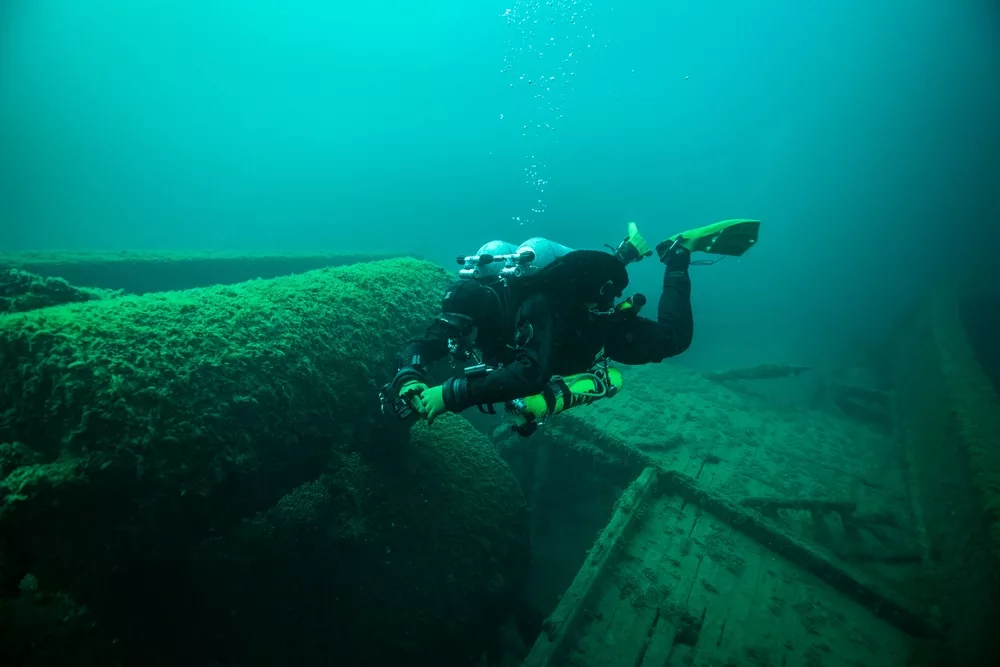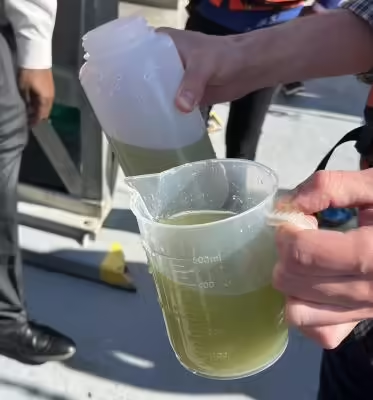The government of Alberta is cracking down on fines for drivers trailering a boat who fail to stop at an open inspection station in an effort to prevent zebra and quagga mussels entering the province’s waterways.
Starting June 20, fines will increase from $324 to $4,200 for failing to stop for inspection. In addition, fines for failing to remove a bilge plug when transporting a watercraft on a roadway are also increasing from $180 to $600.
“Zebra mussels and other invasive species can devastate Alberta’s rivers, lakes, and waterways,” said Rebecca Schulz, Alberta’s minister of environment and protected areas in a news release. “We are setting the highest fines in North America because we want everyone to take inspection and detection seriously. Alberta is currently zebra and quagga mussel-free so let’s keep ’em out.”
Last year, 19 of the nearly 9,000 boats inspected in Alberta carried invasive mussels from other provinces and from south of the border. Inspections determine whether the boats—including motorized vessels and paddle boats such as canoes—are properly drained and free of invasive species. 38 boaters received charges or warnings for failure to stop at an open inspection station, and six received charges or warnings for not removing their bilge plug.
Every time a vessel is removed from the water for transportation, Evans says it should be cleaned, drained, and dried. Invasive mussels can live up to 30 days out of the water, so wiping down and draining your boat will help ensure that your vessel is free of any invasive species.
Invasive mussels could cost Alberta millions in damages
Though they’re no bigger than a finger, the closely related zebra and quagga mussels pose a serious threat to Alberta’s waterways. Megan Evans, the executive director of Alberta’s invasive species council, says that the species are both ecologically and economically damaging.
Unlike native Albertan mussels, invasive mussels are known to latch on to each other and hard surfaces, such as boats or underwater infrastructure. By coating and clogging irrigation pipelines, the species can cause substantial damage to aquatic infrastructure.
As a rule of thumb? An attached mussel is an invasive mussel, says Evans.
Zebra and quagga mussels are also damaging to aquatic ecosystems. One mussel can filter one litre of water a day, removing vital nutrients such as plankton and algae from the water.
“It would turn into an aquatic ecosystem unrecognizable to what it once was,” says Evans. “We want to prevent these species from establishing here.”
While there are currently no invasive mussel infestations in Alberta, the costs of one could be drastic. A recent study estimated that introducing invasive mussels into Lake McGregor alone—a lake that’s part of a larger interconnected system of reservoirs and irrigation in southern Alberta—could cost the province $284 million a year in damages.
Evans says upping the fine is the first piece in the puzzle to keeping invasive species out of the province.“Preventing invasive species is the single most effective way to manage them.”
If you suspect you have invasive mussels on your watercraft, or if you think you see them attached to aquatic infrastructure, Evans suggests calling the invasive species council’s hotline for next steps.
“Invasive species are costing us $2 billion a year in Alberta,” she says. “We all have a role to play to prevent the introduction and spread of invasive species.”
Related Story Great Lakes shipwrecks are facing a threat from an invasive species

Related Story Cottage Q&A: Are zebra mussels disappearing?









+ There are no comments
Add yours